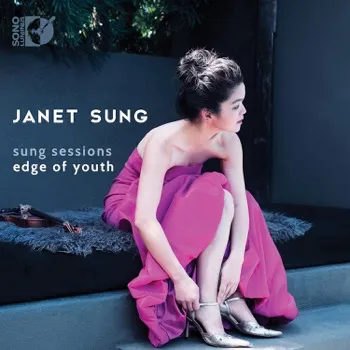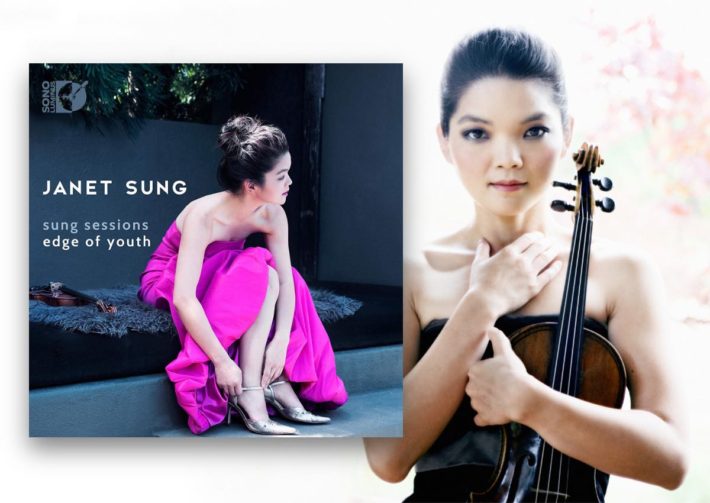First, one has to acknowledge the daringly original program. Not very common for a debut album, violinist Janet Sung chose 2 main pieces from the 20th century by Enescu and Britten, along with 3 pieces by living composers.

Enescu’s fascinating “Impressions d’enfance” (“Impressions from Childhood”), Op. 28 from 1940, is the composer taking a musical trip down memory lane with touches of modernism, folk and little impressionism. Sung in fully sensitive to all of these elements, combining a remarkable bow and left-hand technique that incorporates all the tender singing, declaratory roughness and naivety this piece is calling for. Hear how marvelous is her bird-singing effect on track 4, or how the long phrasing is held in the Lullaby movement (track 5). Pianist William Wolfram is a sympathetic partner throughout the duo pieces in this album, with memorable moments such as the harp-like episode in the “Sunrise” movement (track 10, 2:20). A previous attempt at this wonderful piece by Mihaela Martin and Roland Pöntinen for BIS is out of print (but available for streaming). Compared to the performance we have here, it sounds much more grounded and lacking in character.
The Suite for Violin and Piano, Op. 6, written a few years before the Enescu piece, is Britten at his youthful exploration period, where influences of modernist composers are still very much apparent. Yet this is a joyful listen, the composition as well as the performance. In this instance, Sung and Wolfram are allowing for some humor to sneak in, especially on the second “March” movement, while reserving some lovely sentimentality too, once again, in the fourth, “Lullaby” movement.
Three Living Composers
Sung chose 3 diverse pieces for the contemporary music section of this album. Missy Mazzoli’s “Dissolve, O My Heart for Solo Violin” contains a small homage to Bach’s second partita (the opening chords of the famous “Chaconne” is opening the piece), yet takes it into different directions, harmonically, rhythmically and conceptually. A mesmerizing piece, it also sits completely natural with the violin, allowing Sung to show her technical skills to the fullest.
Dan Visconti’s “Rave-Up” is a fun piece for violin and piano that incorporates few contemporary styles, including touches of jazz, blues, and country music. Gabriel Prokofiev’s “Sleeveless Scherzo” is a more minimalist, almost thin in musical material, that shows Sung’s concentration abilities and skillfulness in the difficult bow and pizzicato combination required here.
Intimately recorded at the Luminus Studios in Virginia, this makes for an impressive and highly enjoyable album.
“Edge of Youth”
Enescu – Impressions d’enfance, Op. 28
Britten – Suite for Violin and Piano, Op. 6
Missy Mazzoli – “Dissolve, O My Heart”
Dan Visconti – “Rave-Up”
Gabriel Prokofiev – “Sleeveless Scherzo”
Janet Sung – Violin
William Wolfram – Piano
Sono Luminus, CD DSL-92230




















